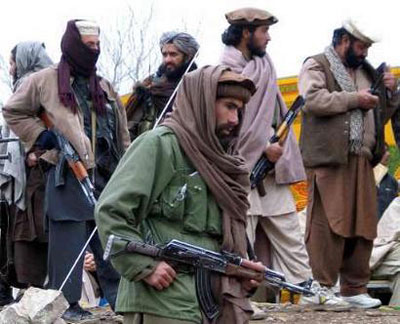The Five Weak Points of Obama’s Soft Diplomacy
To summarize Obama’s initial 100 days of diplomacy, the main characteristic is its flexibility, with more friendliness and easier accessibility. What this policy really means is the U.S. is attempting to establish a wider and higher stance of moral influence by using “soft and smart methods,” such as goodwill, and occupying the commanding post of moral status in international society.
It is still difficult to depict a clear and complete panorama of Obama’s diplomacy, yet the current U.S. administration seems to be more and more dependent on the use of soft power. Generally speaking, it is mainly used to improve public relations, which would be a plus for their national image. Nevertheless, uplifting America’s image in international society is not the sole reason. What’s more is to rebuild the icon of a world moral leader.
By adjusting its diplomacy policies, the Obama administration could “pay” less, while completing its goal of achieving maximum benefit. Emphasizing moral influence does not necessarily mean that the U.S. would hand over its leading power on global issues. In the past, America tended to show its super military power to achieve this strategic goal, which could be instead fulfilled by exerting its moral rallying power.
Former U.S. President Jimmy Carter, expressing disapproval toward the Bush administration, has said: “A country will have authority and influence because of moral factors, not its military strength; because it can be humble and not blatant and arrogant; because our people and our country want to serve others and not dominate others. And a nation without morality will soon lose its influence around the world."
To affect international issues by using moral power does not mean discarding the hard-line methods and only brandishing rewards. Whether it is sugarcoating tough tactics or the “carrot first, stick later” strategy, the U.S. will never forsake its strong military support. However, moral influence, like military force, is also a power.
More and more, America is using soft power in international affairs. In the foreseeable future, there will surely be a controlled power led by the U.S. over international public opinion.
However, under current international circumstances, as the power of newly booming economies are rising, the economies of America and other Western countries are starting to decrease, relatively. The whole world’s politics, economies and security patterns are in an unstable interim from mono-power to becoming dominated by multi-powers. Thus, the soft diplomacy of the Obama administration will face severe challenges in at least five ways.
First, soft power cannot be the panacea for every difficulty. What is the bottom line of “soft diplomacy?” For some thorny issues, especially when facing unprecedented security threats like terrorist attacks, can the Obama administration counter back with this new diplomacy? Will it then lessen its emphasis on soft diplomacy and turn back to strengthening military power?
Second, whether soft diplomacy affects policy or not depends on how far the Obama administration will go. There is no free meal in the world. Even if the price of soft diplomacy costs less than military interference, it is still not a free of charge deal. How much could or will the U.S. pay? What kind of compromise will they make with what kind of countries? That is undoubtedly not a simply question.
Third, if they keep using soft diplomacy, will this method advance America’s capability to bargain with its competitors? How to distinguish “friend or foe” of America has aroused concern within the U.S. diplomatic circle. Some think this Obama-style diplomacy could worry U.S. allies and delight rivals. What if rival countries took advantage of this soft diplomacy to improve their hidden agendas? Could that situation happen and provoke existing conflicts rather than soothe them?
Fourth, we can draw up measures based on America’s moral standard, which might appeal to some allies, but may also bring some new troubles to international society, such as the newly formed distrust among different countries about their various societies, cultural aspects and political systems.
Fifth, the expansion of exerting soft diplomacy also represents the shrinkage of hard power, and if this happens in the U.S., it will cause significant changes in global politics, the economy and security patterns. There is neither any country in the world willing to take over, nor could any sufficient mechanism take responsibility over from America. Many areas still lack security patterns, and the cutting down of U.S. military power might result in new instability in some countries.
Based on the five challenges above, we can only say that there are concerns about Obama’s diplomacy. Whether it could effectively work as planned to solve problems is still hard to tell.


